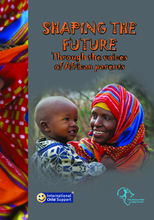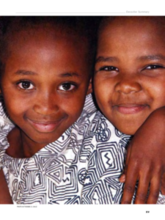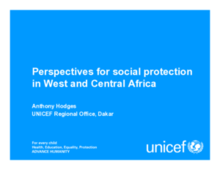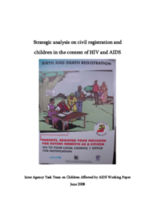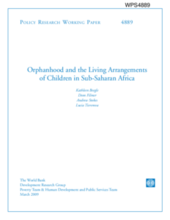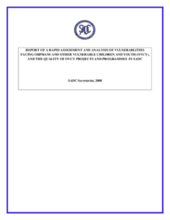

Displaying 161 - 170 of 216
This document informs stakeholders about the opportunities for and constraints on building the social work workforce within the child welfare sector in Africa.
This publication documents real life stories of selected African parents, shedding light on the multifaceted challenges parents are faced with and the kind of support they need to bring about behavioral change and enhanced capacity.
Assessment of individual African government's performance in regards to child welfare.
Assesses constraints and opportunities for social protection programming regionally with particular consideration for child sensitive social protection.
Examines dynamics between achievements in universal birth registration and enhanced protection of children.
Using household survey data from 21 countries in Africa, this study examines trends in orphanhood and living arrangements, and the links between the two.
Ce rapport est de faire du droit une réalité dans le Grand lac de la région de l'Afrique de l'enfant.
This study sought to assess, analyse and inform the different forms of vulnerabilities affecting children and youth, and their effects and existing strategies and programmes addressing the challenges and vulnerabilities facing orphans, vulnerable children and youth (OVCY) in the Southern Africa Development Community (SADC) region. The study also sought to propose recommendations for improvement, and development of minimum standards for OVCY and the finalisation of the SADC OVCY Strategic Framework.
The first International Conference on Sexual Abuse of the African Child will be held in Nairobi, Kenya from 24–26 September 2007. The aim of the conference is to advance knowledge regarding the various types of sexual abuse and their complexity in the cultural settings of Africa.
This document is intended to provide concrete advice on how to put the guiding principles common to most child protection actors into practice. Though cultural traditions and customs may require the advice to be adapted to the specific context, the authors believe that the advice provided is grounded in sufficiently broad experience to guide measures that ensure children under five are not separated when this can be avoided, and, if separated, can be reunited with their families as quickly as possible.


